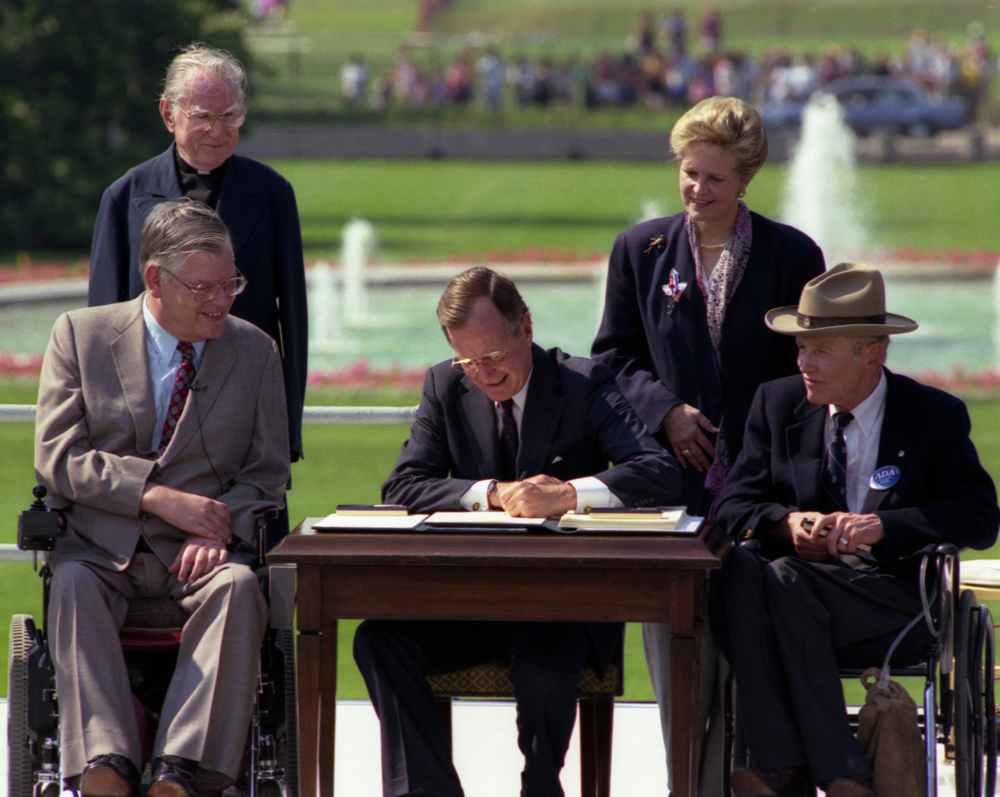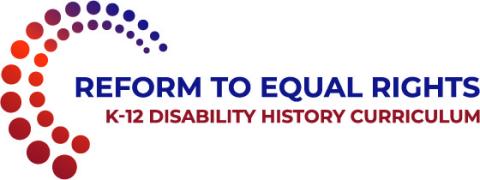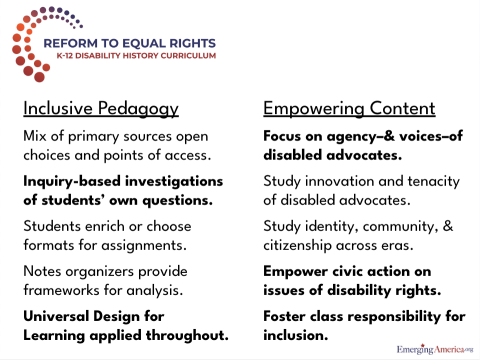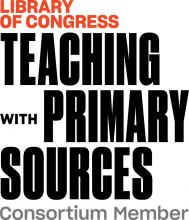Principles and Design Process for the Reform to Equal Rights Curriculum
First Comprehensive Disability History Curriculum
On March 8, 2023, the Emerging America program of the Collaborative for Educational Services (CES) launched Reform to Equal Rights, the first ever K-12 Disability History Curriculum. The curriculum supports history and civics teachers in all settings. Lessons can stand on their own. Or teachers can integrate lessons, selections from the 250 primary sources (most from the Library of Congress), or accessible activities into what they already teach on topics such as impacts of wars, immigration, social movements, and changing roles of government, from the early 19th century to the 21st. The time has come to incorporate this vital history into how we teach American history.
Alignment of Reform to Equal Rights with Disability History Content in State Standards
Guiding Principles for the Curriculum
Work on the Reform to Equal Rights curriculum began in earnest in the fall of 2021 with a Library of Congress Teaching with Primary Sources grant supplemented by a Mass Humanities Expanding Massachusetts Stories grant. Our proposal emphasized inquiry and the compelling and adaptive power of primary sources. All lessons model strategies and tools for access, guided by Universal Design for Learning and essential cultural considerations.
A national advisory group of history and Special Education teachers, disability advocates, and the project history advisor set core principles for the work: Every unit includes an introductory lesson with definitions and key information, groundwork to ensure respectful use of words, and exploration of ways to make the classroom inclusive. All lessons on topics from the early 1800s to today highlights disabled advocates for people with disabilities, featuring their own words whenever we know them.
Most importantly, the curriculum builds on students’ skills, attitudes, and practice in self-determination. Upper elementary, middle grades, and high school units culminate in opportunities for student-led research and civic engagement projects.
This emphasis on self-determination, civic engagement, Universal Design for Learning, and inquiry aligns closely with the Disability History and Civics Extension to the Educating for American Democracy (EAD) Roadmap. (Especially to EAD Theme 1: Civic Participation, and Theme 3: We the People.) Emerging America drafted the extension in 2021 in partnership with the Learning Disabilities Association of America.
Reform to Equal Rights is published in google docs and google slides for accessibility. (Aided by the Grackle tool.) The platform also allows us to update materials continuously. Disability advocates, including from Easterseals Massachusetts, and Keene State College historian Graham Warder reviewed draft lessons. Teachers from Massachusetts and other states piloted lessons and gave invaluable input. We are also eager to receive your input.
Further Resources
Online Exhibit on Civil War Nurses and Disabled Veterans
The Mass Humanities grant allowed us to partner with the UMass Amherst Department of History, and so we hired Public History graduate student Emma Lewis. With Graham Warder, and the staff of the Massachusetts Historical Society, we researched and created the online exhibit: How the Civil War Transformed Disability. Link to the exhibit.
Other Disability History Teaching Resources
Emerging America has long joined the work of the Disability History Museum, which includes excellent lessons and research opportunities for high school and college students. Our web page Disability History through Primary Sources portal also links to a wealth of lessons and primary source collections from organizations across the web. And we will continue to link to sample lessons on disability history from teachers in our Accessing Inquiry courses which address very particular classroom situations as they model strategies and tools for access.
Acknowledgments
Thanks to the support of our funders, Reform to Equal Rights lessons and slides are offered at no cost. Nearly all of the primary sources come from the Library of Congress and other public agencies. Teachers may use them in their classrooms. Publishers should confirm the copyright status of all sources. All users must credit the Collaborative for Educational Services, Emerging America, and the Library of Congress Teaching with Primary Sources Program, and link to the Reform to Equal Rights: K-12 Disability History Curriculum at Emerging America. (e.g. Always retain the citation slide.)
Project Advisors and Reviewers include:
- Amanda Ammer, Oakwood City School District
- Ann Barysh, Randolph Public Schools, Retired
- Andrew Carr, Easterseals Massachusetts
- Austin Carr, Easterseals Massachusetts
- *Cindy Cipoletti, Learning Disabilities Association of America
- *Desiree Forte, Easterseals Massachusetts
- Kathryn Gabriele, Massachusetts Department of Elementary and Secondary Education
- Anita Griffin, Easterseals Massachusetts
- Wendy Harlow, Norfolk County Agricultural High School
- *Wendy Harris, Metro Deaf School, St. Paul, Minnesota
- Alex Kuschel, Lexington Public Schools
- Carolyn MacWilliam, Everett Public School District
- *Kate Melchior, Massachusetts Historical Society
- *Ross Newton, HEC Academy
- *Alison Noyes, Emerging America
- *Ace Parsi, iCivics
- *Mary Phillips, Educational Service Unit, Nebraska (retired)
- Stephanie Polito, Easterseals Massachusetts
- *Laurie Risler, Westfield State University, Massachusetts
- Michael Roblinski, Collaborative for Educational Services, Department of Youth Services Education Program
- Cody Rooney, Easterseals Massachusetts
- Marina Shelton, Easterseals Massachusetts
- Jenny Speck-Sherson,
- *Elyssa Tardif, Massachusetts Historical Society
- *Graham Warder, Keene State College, New Hampshire
- Anna Weinberger, Easterseals Massachusetts
- Jen Wheeler, Street Law
- *Sherry Zubeck, Lancaster-Lebanon Intermediate Unit 13, Pennsylvania
* = Advisory Committee
Affiliations are for identification only and do not necessarily signify organizational endorsement.
Reform to Equal Rights is made possible through a Teaching with Primary Sources grant from the Library of Congress.
This program is also made possible by a grant from Mass Humanities, state-based affiliate of the National Endowment for the Humanities, which provided funding through the Massachusetts Cultural Council (MCC).








